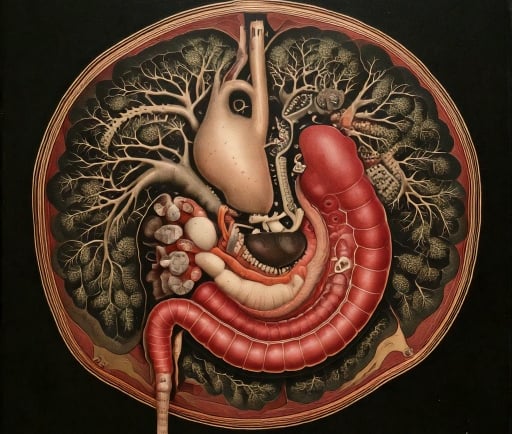The Mesentery: A Newly Recognized Organ in the Digestive System


Introduction to the Mesentery
The mesentery has recently gained attention as a significant structure within the human digestive system. Traditionally overlooked in anatomical studies, this continuous structure is now recognized as an organ that plays a crucial role in maintaining the organization of the intestines. It connects the intestines to the posterior abdominal wall, providing not only support but also a pathway for blood vessels, lymphatics, and nerves.
The Structure and Function of the Mesentery
The mesentery is composed of folds of peritoneum, which is a membrane that envelops and supports the abdominal organs. This unique design allows the mesentery to hold the intestines in place while also ensuring they maintain mobility. The mesentery is divided into various sections, each associated with different parts of the intestines. It provides a framework that supports the small and large intestines, allowing for proper organ function and movement during digestion.
The Importance of Recognizing the Mesentery as an Organ
By defining the mesentery as an organ, researchers and medical professionals can improve their understanding of various gastrointestinal disorders. Its classification as a distinct organ enhances the knowledge of its role in conditions like Crohn's disease and other inflammatory bowel diseases. Furthermore, this recognition may pave the way for innovative therapies that can target the mesentery directly in cases of dysfunction, improving patient outcomes.
Moreover, understanding the mesentery's functionality contributes to the broader field of anatomy and physiology. The interconnectivity it provides among abdominal organs not only enhances digestive processes but also impacts overall health. With a well-established recognition of its significance, further research can lead to groundbreaking discoveries in digestive health and disease management.
Conclusion
In summary, the mesentery is an invaluable structure within the digestive system that warrants further attention and study. As a recently acknowledged organ, it fulfills vital functions, such as holding the intestines in place, facilitating nutrient absorption, and playing a role in immune responses. As the medical community continues to explore its complexities, the mesentery may well reshape our understanding of gastrointestinal health and offer new avenues for treatment.
